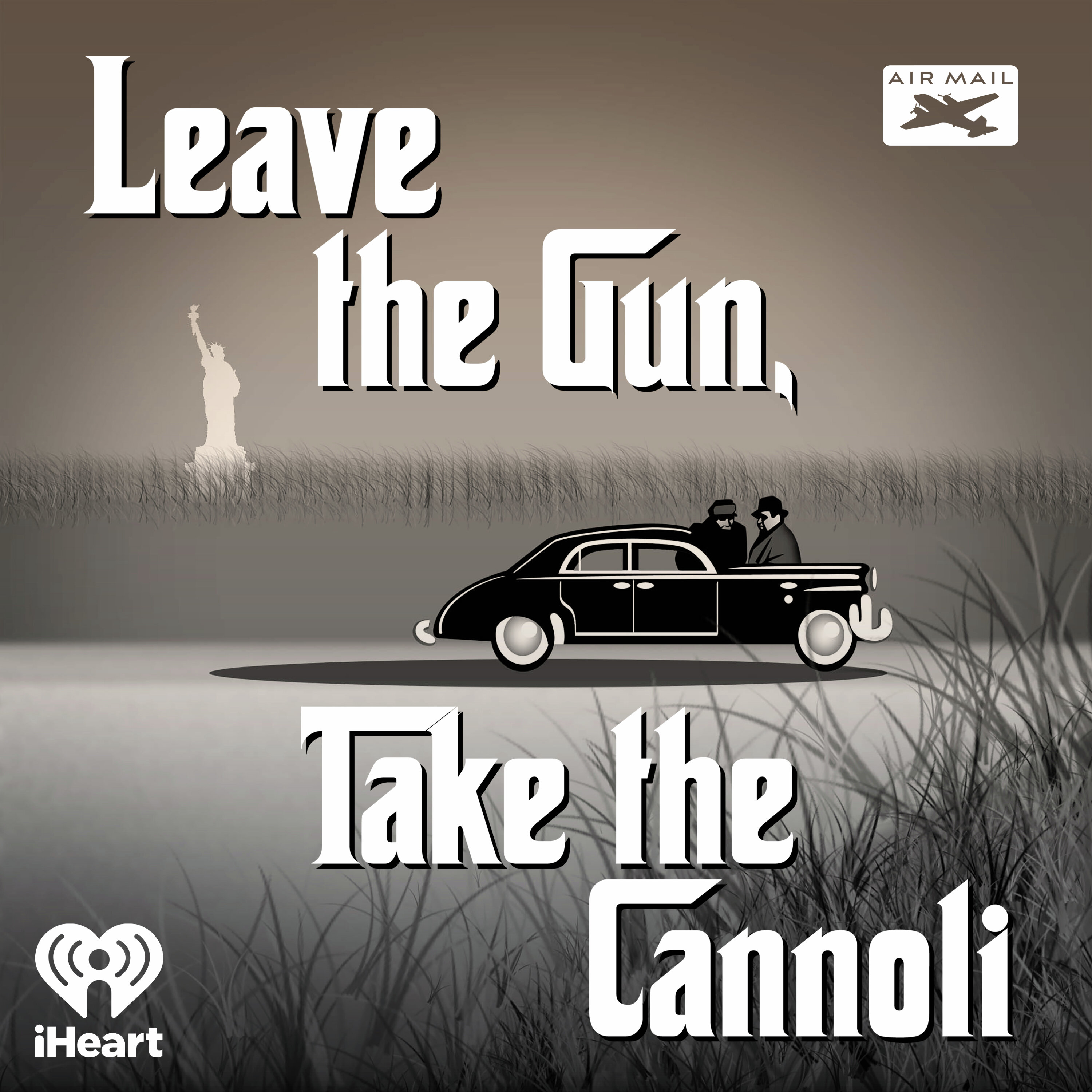
Introducing: Leave the Gun, Take the Cannoli
See omnystudio.com/listener for privacy information.
Listen and Follow Along
Full Transcript
In the history of cinema, few films have been as successful as The Godfather. When it was released in March of 1972, Francis Ford Coppola's gangster epic set a new standard not just for movies about the mafia, but for movies in general.
It's my most important legacy in life. Although, if you talk to the people who made it, The Godfather's prospects for success were far from assured.
In fact, before its release, they were pretty bleak. And they said, we're finished.
This is over. The loom is not going to work.
You gotta get rid of those guys. It's a disaster.
People close to the movie have talked a lot over the past 50 or so years about how difficult it was to make The Godfather. But in Leave the Gun, Take the Cannoli, my co-host Mark Seal and I stripped back the varnish of movie history and talked to never before heard from sources to get at what really made the process so arduous.
For starters, Mario Puzo, the author of the book on which the movie is based, only wrote it because he was deep in gambling debt. This dead-broke writer comes into his office with a 35-page treatment under his arm, and pretty soon, over cigars and conversation in Evans' office, the two men strike a deal.
And when the studio behind the film, Paramount, tried to enlist a bankable director, it couldn't find one. Its solution? To hire Coppola, a relative unknown who proved to be every bit the visionary they'd hoped for.
The only problem was that the Paramount executives and producers didn't always see eye-to-eye with Coppola's vision. Jack Ballard was hired basically by Robert Evans to be there on the set and to haunt me.
At every turn, from script writing and casting to editing and choosing the music, Paramount fought tooth and nail against the director. Francis just got so sick of everything.
He goes, I'm going to Sicily, just cast my f***ing movie, excuse my language. But that's just the beginning.
Serious trouble came for The Godfather when the real-life mafia tried to stop the film from being made. The five families did not want us to shoot that picture in New York.
The mob thought Hollywood had given Italian-Americans a bad rap, and they were certain The Godfather would only deepen that stigma. So they waged a campaign of threats and scare tactics.
But the studio and the filmmakers were not to be deterred by what at times amounted to more than threats. My kids came in all hysterical.
They'd heard gunshots. They worked their connections and did everything they could to win over the people the film was based on.
Well, at least most of them. I look over at Sinatra's table, and oh my God, Mario's standing at Sinatra's table.
And I looked at Mario, and his face was ashen. Despite the almost unfathomable hardship of making The Godfather, it minted a new generation of stars.
It also made over $250 million, won several Oscars, and redefined America's relationship to one of its darkest, most shadowy forces, the Mafia. No, I'm saying when you heard the terminology, crime don't pay, crime pays.
The result was a modern masterpiece that bridged old Hollywood and new Hollywood and managed to win over the American public and the mafia alike.
And the projectionist called me.
Hey guys, Mr. Ruddy, I've been a projector my whole life.
No one ever gave me a thousand dollar tax.
Leave the Gun, Take the Cannoli is based on my co-host Mark's best-selling book of the same title.
And on this show, we call upon his years of research to help unpack the story behind The Godfather's birth from start to finish. We sift through innumerable accounts,
many of them conflicting, and try to get to the truth of what really happened.
And more importantly, we find out how a story that starts like this... So, I pull up next to Randall, I roll my window down, I just stick my ass out to me.
This is the
first day he's met us.
...ends like this. You gotta understand, nobody ever envisioned the success of this move.
Leave the Gun, Take the Cannoli features new and archival interviews with Francis Ford Coppola. Yes, that was a real horse's head.
Robert Evans. They've called me the godfather's godfather.
James Caan. Jimmy, they want you to come with a test.
I said, test what? You got a Porsche? You want me to drive around the block? Al Ruddy. Mom said, I got a call from these Italian guys.
If you want to see the movie, it makes me a lot of trouble. Talia Shire.
Everything was a very arduous chess game. And many others.
We still aren't entirely sure what's true and what's not. But we can promise that our 10-part series gives everyone who is involved a chance to tell their side of the story.
Listen and subscribe to Leave the Gun, Take the Cannoli, starting February 19th on the iHeartRadio app, Apple Podcasts, Spotify, or wherever you get your podcasts.